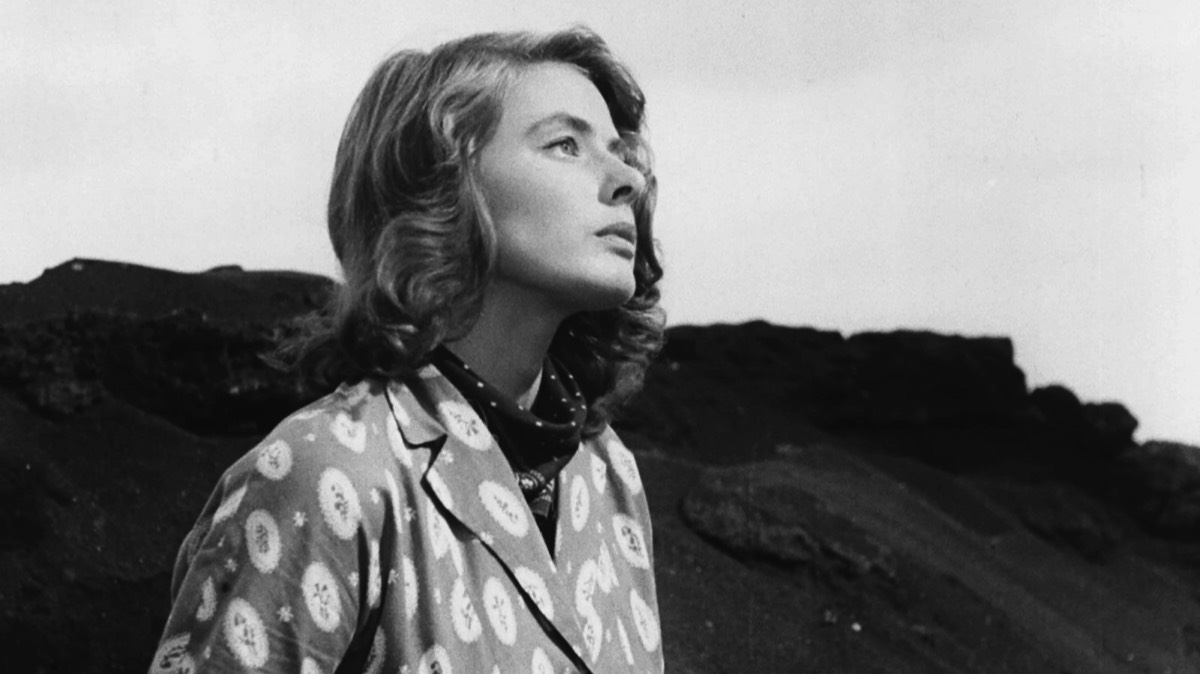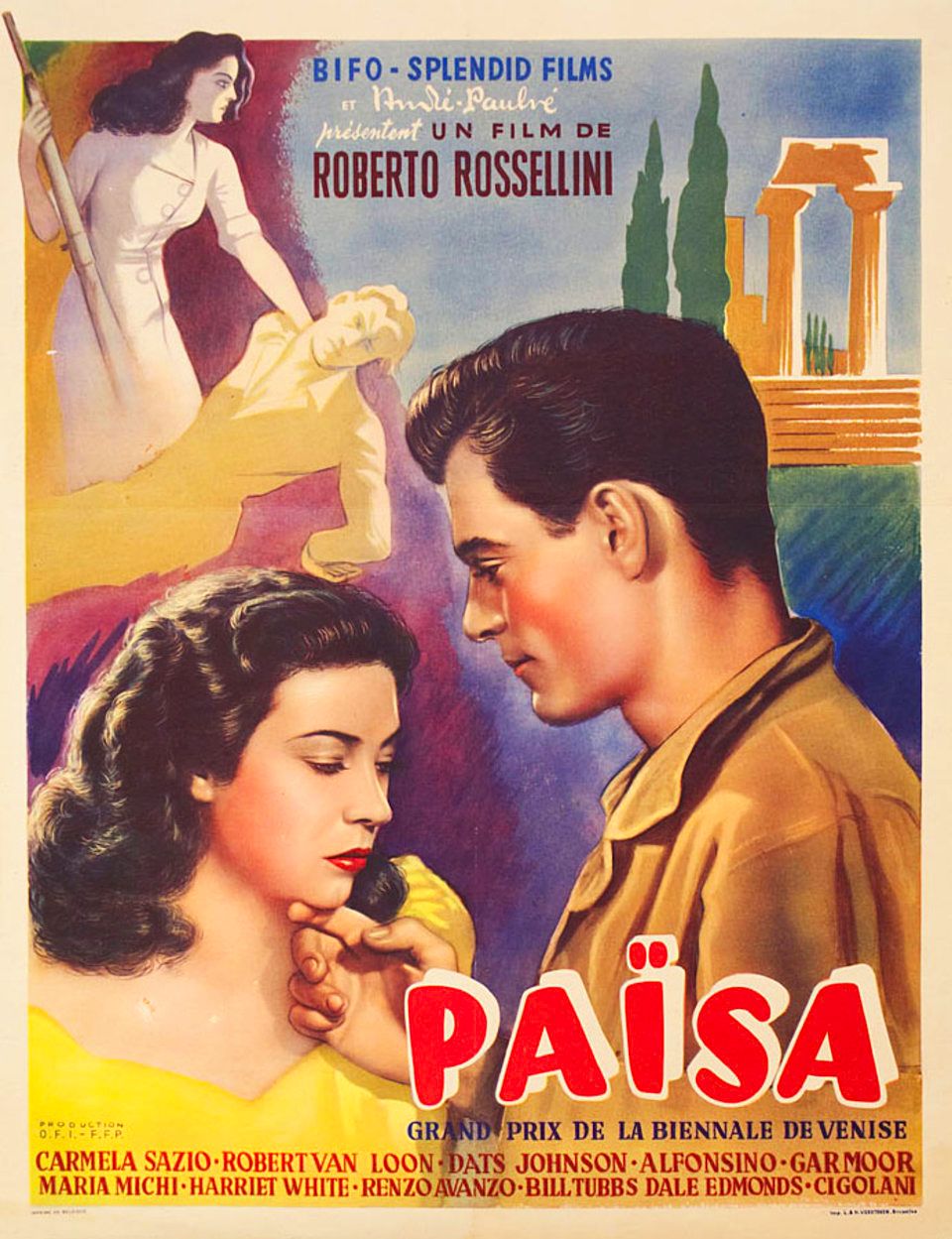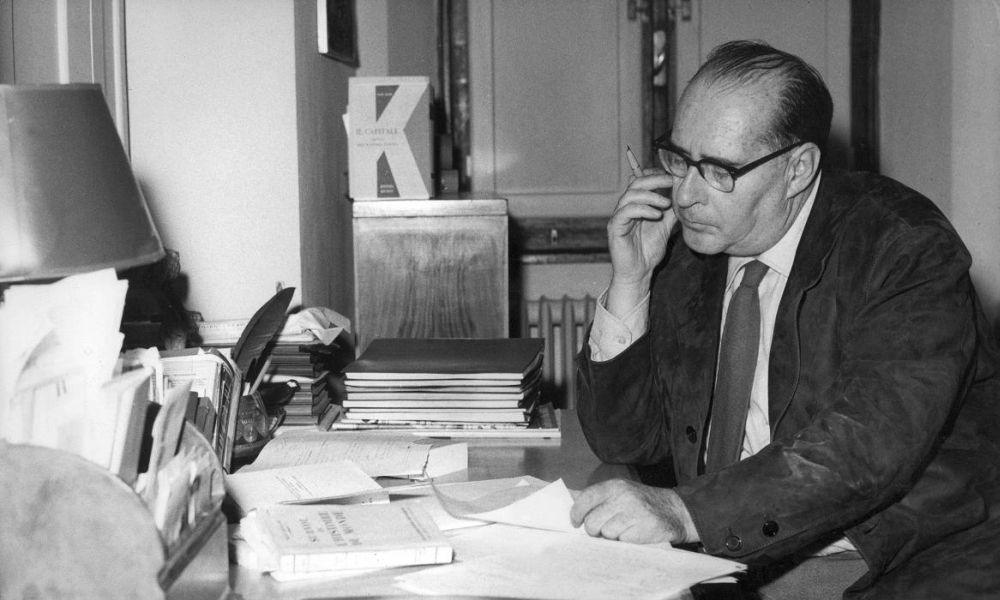"Passion and humanity resonate through the films of Roberto Rossellini in the three phases of his career: neorealism, the Ingrid Bergman melodramas, and the films on saints and historical figures." - Ronald Bergan (Film - Eyewitness Companions, 2006)
Roberto Rossellini
Key Production Countries: Italy, France
Key Genres: Drama, Religious Drama, Biopic, War Drama, Psychological Drama, Historical Film, Period Film, Marriage Drama, Hagiography, Resistance Film, Documentary
Key Collaborators: Renzo Rossellini (Composer/Producer), Jolanda Benvenuti (Editor), Sergio Amidei (Screenwriter), Mario Nascimbene (Composer), Luciano Scaffa (Screenwriter), Marcella Mariani (Screenwriter), Ingrid Bergman (Leading Actress), Diego Fabbri (Screenwriter), Otello Martelli (Cinematographer), Eraldo Da Roma (Editor), Federico Fellini (Screenwriter), Aldo Tonti (Cinematographer)
Key Genres: Drama, Religious Drama, Biopic, War Drama, Psychological Drama, Historical Film, Period Film, Marriage Drama, Hagiography, Resistance Film, Documentary
Key Collaborators: Renzo Rossellini (Composer/Producer), Jolanda Benvenuti (Editor), Sergio Amidei (Screenwriter), Mario Nascimbene (Composer), Luciano Scaffa (Screenwriter), Marcella Mariani (Screenwriter), Ingrid Bergman (Leading Actress), Diego Fabbri (Screenwriter), Otello Martelli (Cinematographer), Eraldo Da Roma (Editor), Federico Fellini (Screenwriter), Aldo Tonti (Cinematographer)
"Rossellini adapted the Catholic ideology of his early postwar films, Open City or Germany Year Zero, to the art cinema genre where moral questions were posed at a personal level, rather than in the context of the cataclysmic events of WWII. Rossellini had displayed a set of precise techniques that would become foundational to art cinema; long shots to induce spectator speculation about a character’s psychological makeup and narratives without the sort of closure and happy ending that characterized Hollywood cinema in particular." - Carlo Celli & Marga Cottino-Jones (A New Guide to Italian Cinema, 2007)
"As most precisely exemplified in his early, pure neorealistic films, his camera is relentlessly fixed on the physical aspects of the world around us. Yet, as defined by his later works, which both retain and modify much of this temporal focus, the director is also trying to capture within the same lense an unseen and spiritual landscape. Thus, the one constant within all of his films must inevitably remain his concern for fundamental human values and aspirations, whether they are viewed with the anger and immediacy of a Rome, Open City or the detachment of a Viaggio in Italia." - Stephen L. Hanson (The St. James Film Directors Encyclopedia, 1998)

Stromboli (1950)
"Distinguished Italian film-maker, at his most forceful in the post-war years. Then, he took the world by storm with a series of dramatic and painful films depicting the horrifying aftermaths of war that were instrumental, together with films by Vittorio De Sica and others, in boosting the prestige of the Italian cinema." - David Quinlan (Quinlan's Film Directors, 1999)
"Over his forty-year career Rossellini’s films took several broad turns, from his Neorealist masterworks of war and its immediate aftermath to the extraordinary melodramas he made with Ingrid Bergman to “didactic” works made for television about men whose ideas altered the course of civilization (Jesus, Socrates). Rossellini’s films are characterized by their inflection of “actuality” (shooting on location and casting everyday people alongside professional actors), recognition of the mystery of human behavior, belief in spiritual transcendence, and desire to stimulate audiences’ curiosity." - The Museum of Modern Art
"Rossellini was less a filmmaker than someone who observed the world through film. He had worked his way toward the idea that any situation could be made intelligible and moving by film and that "human stories" were natural illustrations of history and politics. Rossellini though that "The real creative artist in the cinema is someone who can get the most out of everything he sees - even if he sometimes does this by accident." - David Thomson (The New Biographical Dictionary of Film, 2002)
"A founder of Italian neorealism, Roberto Rossellini brought to filmmaking a documentary-like authenticity and philosophical stringency that changed the course of film history. Rossellini broke out with Rome Open City, a shattering and vivid chronicle of the Nazi occupation of Italy’s capital, followed by Paisan and Germany Year Zero, which round out his celebrated War Trilogy… Throughout his evolutions, he yearned to show life’s minutiae unadorned, bare and pure. Echoes of Rossellini’s approach to filmmaking are still felt in movements around the world, from China to Iran to South America to the United States. It’s fair to say modern cinema wouldn’t exist as we know it without him." - The Criterion Channel
"Roberto Rossellini was christened "the father of modern film" by Cahiers du Cinéma. Along with Jean Renoir, he was the most important influence on the nouvelle vague directors - and beyond them, on Michelangelo Antonioni and anyone who thinks seriously about realism and humanism in cinema, from the Dardenne brothers to Lars von Trier and the other members of the Dogme collection." - Tom Charity (The Rough Guide to Film, 2007)
"A master of Italian neorealism, Rossellini created a number of passionately objective films about Italy at war (Open City, 45; Paisan, 46). He then moved on to intense character studies (Stromboli, 50) before lensing a series of stark, slowly unfolding historical essays in the form of drama (The Rise of Louis XIV, 66; Socrates, 70)." - William R. Meyer (The Film Buff's Catalog, 1978)
"I do not want to make beautiful films, I want to make useful films." - Roberto Rossellini
Selected Filmography
{{row.titlelong}}
Roberto Rossellini / Fan Club
Martin Scorsese, Michelangelo Frammartino, Yoel Meranda, José Luis Guarner, Miguel Marías, Kent Jones, Jean-Pierre Dardenne, Luca Guadagnino, Amos Gitai, Filipe Furtado, Michael Haneke, James Quandt.
Martin Scorsese, Michelangelo Frammartino, Yoel Meranda, José Luis Guarner, Miguel Marías, Kent Jones, Jean-Pierre Dardenne, Luca Guadagnino, Amos Gitai, Filipe Furtado, Michael Haneke, James Quandt.
"Fan Club"
These film critics/filmmakers have, on multiple occasions, selected this director’s work within film ballots/lists that they have submitted.
These film critics/filmmakers have, on multiple occasions, selected this director’s work within film ballots/lists that they have submitted.


